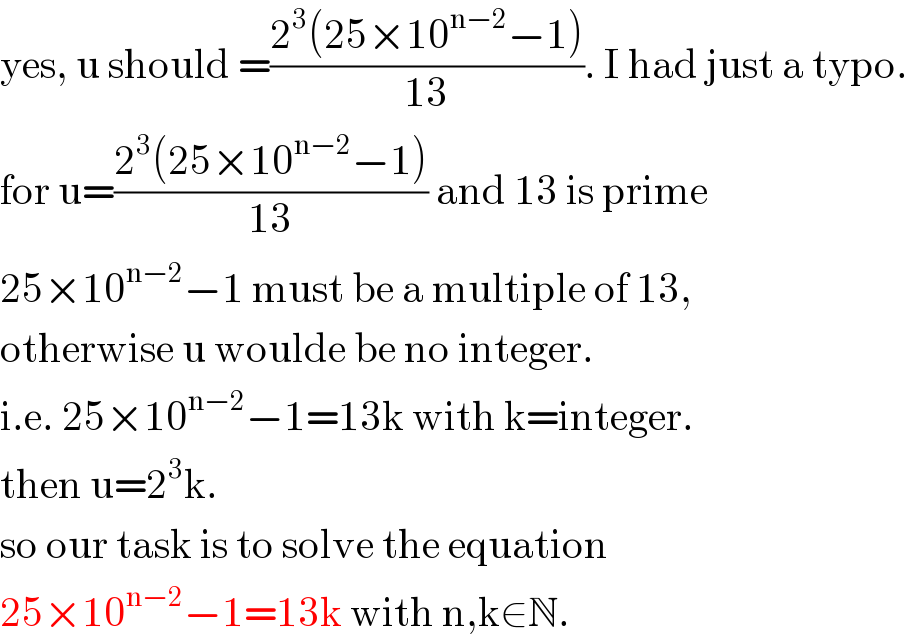
Question and Answers Forum
Question Number 18884 by Tinkutara last updated on 31/Jul/17

Answered by mrW1 last updated on 01/Aug/17
![let′s say the number has n+1 digits let x=[abcd...pqr6]=10u+6 let y=[6abcd...pqr]=6×10^n +u y=4x ⇒6×10^n +u=4(10u+6) ⇒6(10^n −4)=39u ⇒2(2^n ×5^n −2^2 )=13u ⇒2^3 (2^(n−2) ×5^n −1)=13u ⇒2^3 (25×10^(n−2) −1)=13u ⇒u=((2^3 (25×10^(n−2) −1))/(13)) ⇒25×10^(n−2) −1=13k the smallest n=5: 25×10^(5−2) −1=25000−1=24999=13×1923 ⇒min. u=2^3 ×1923=15384 ⇒min. x=153846 the further numbers are: x=153846153846 x=153846153846153846 x=153846153846153846153846 ......](Q18887.png)
Commented by Tinkutara last updated on 01/Aug/17

Commented by mrW1 last updated on 01/Aug/17

Commented by mrW1 last updated on 01/Aug/17

Commented by Tinkutara last updated on 01/Aug/17

Commented by mrW1 last updated on 01/Aug/17

Commented by Tinkutara last updated on 01/Aug/17

